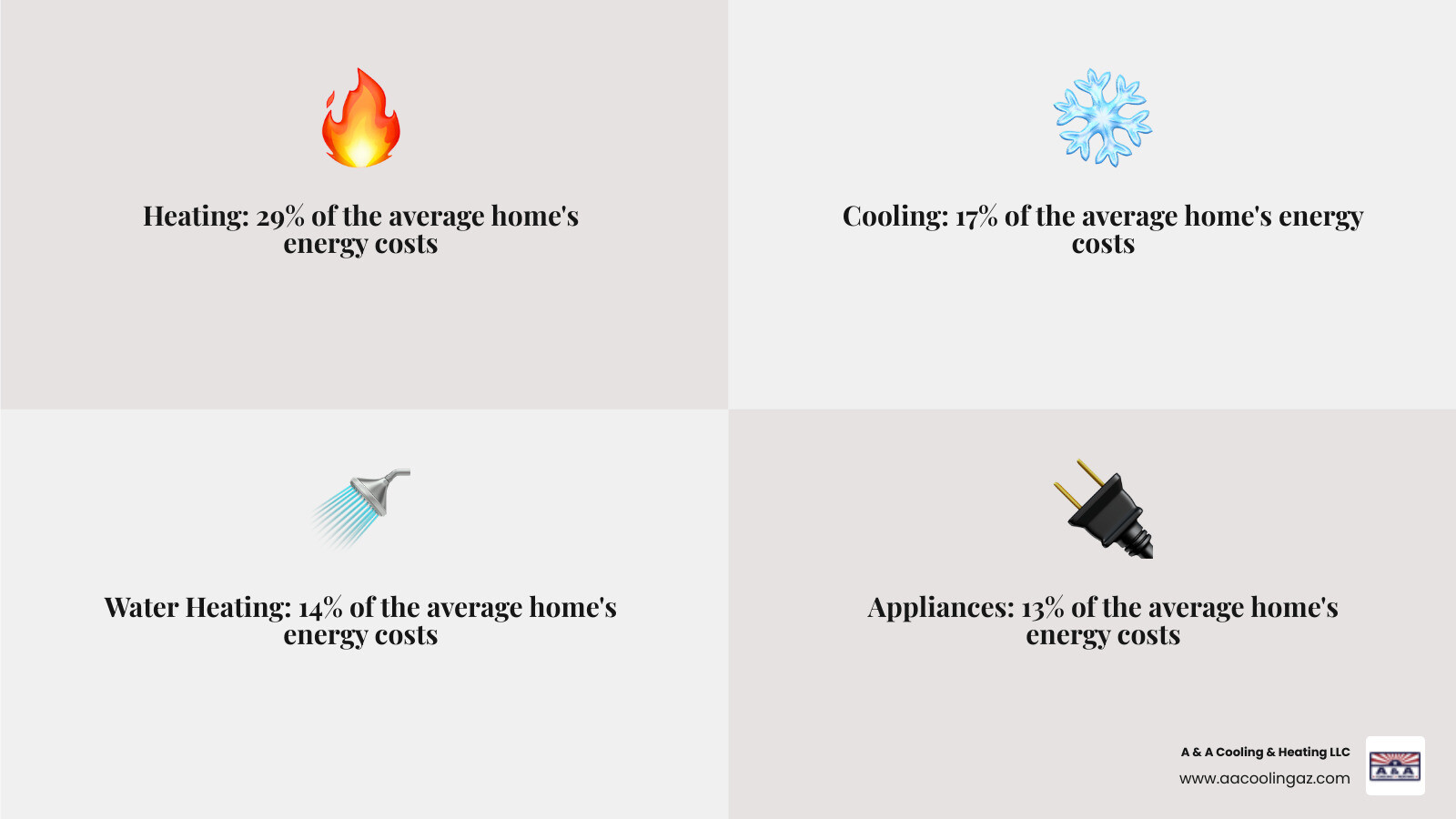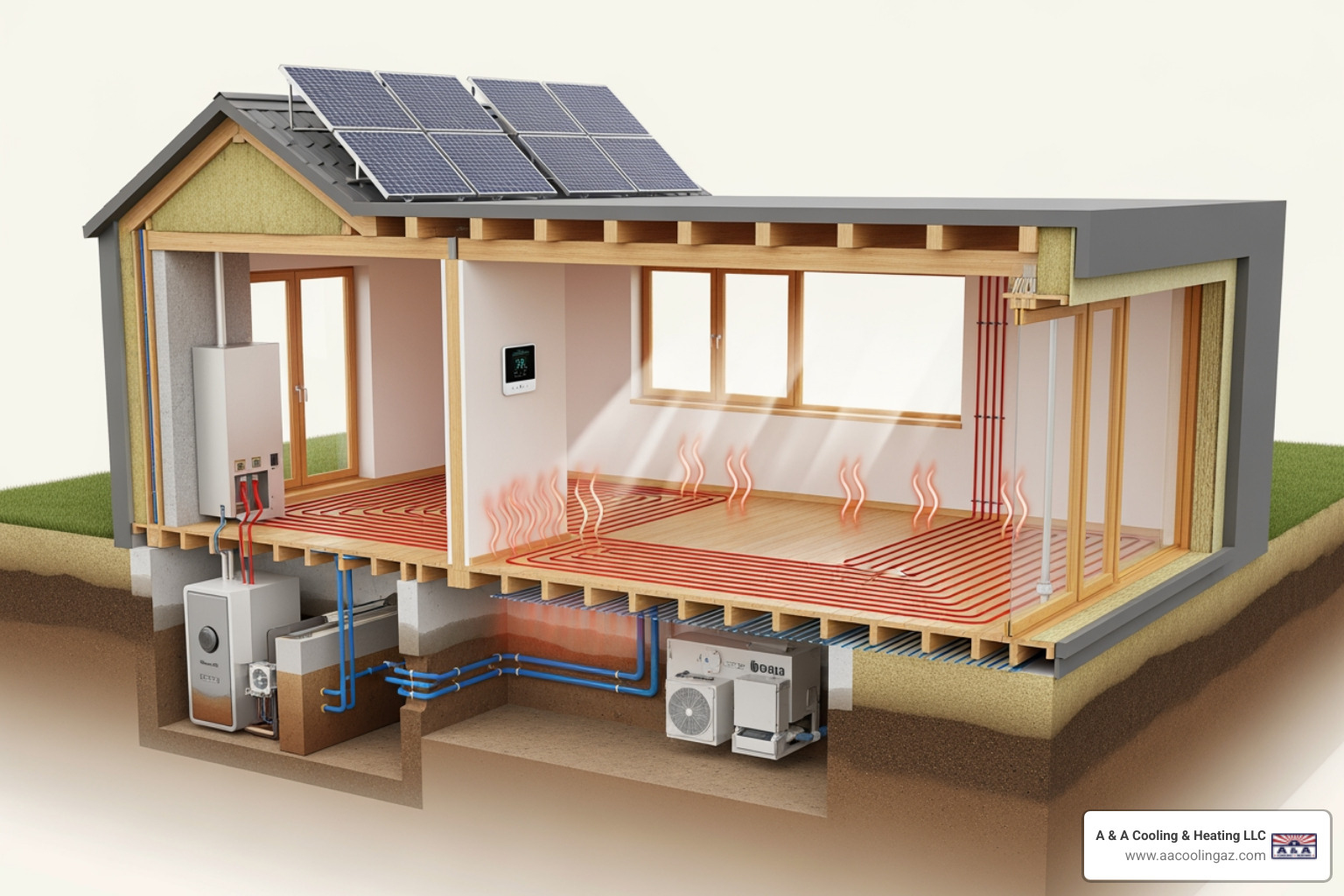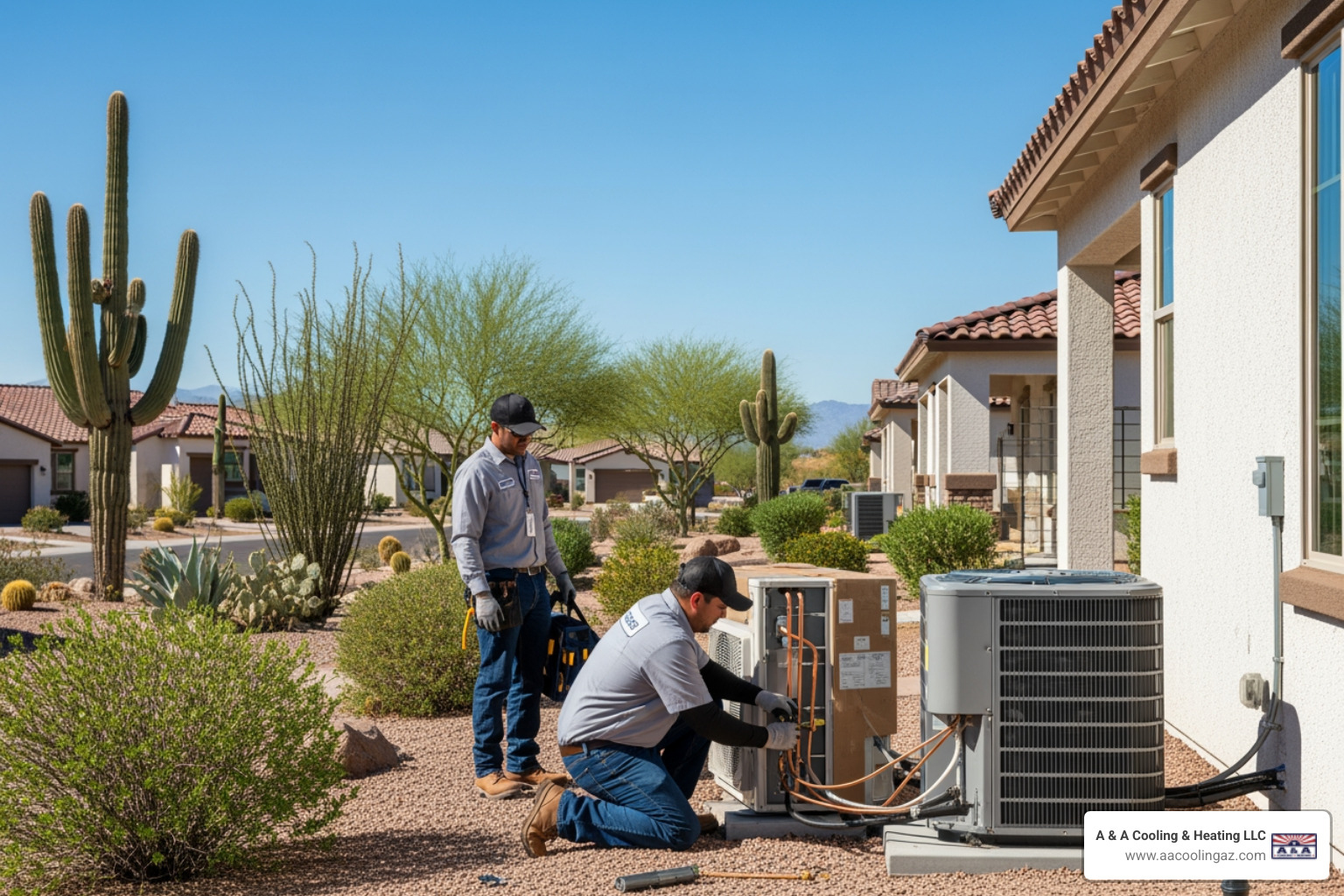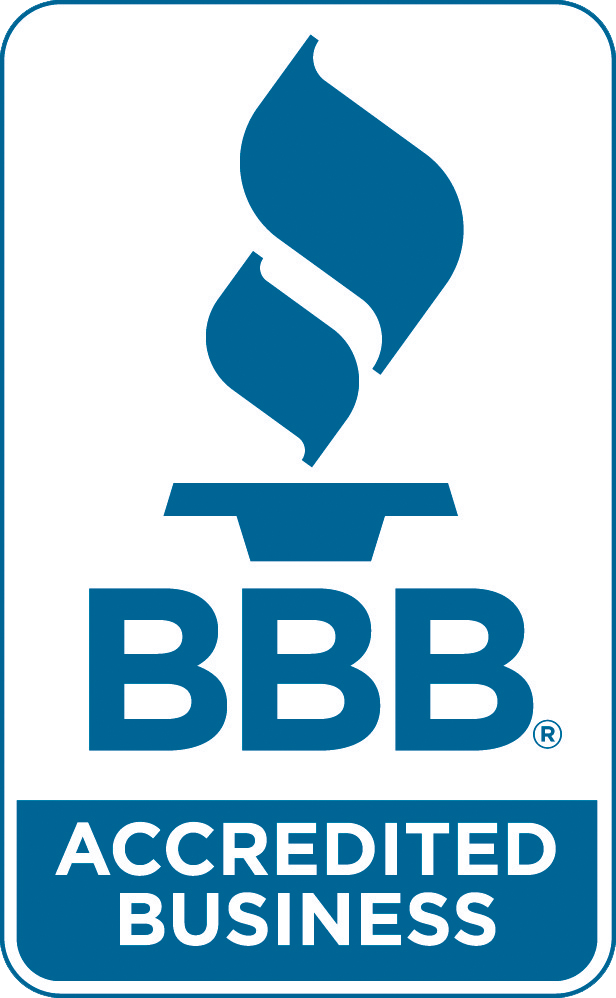Unlock Savings: The Ultimate Guide to Energy-Efficient Heating

Why Energy Efficient Heating Matters for Your Apache Junction Home
Energy efficient heating is the key to slashing your utility bills while keeping your Apache Junction home comfortable year-round. With heating accounting for nearly 29% of the average home's energy costs, choosing the right system can save you hundreds of dollars annually.
Quick Answer: Top Energy-Efficient Heating Options
- Heat Pumps - Reduce electricity use by up to 75% compared to traditional electric heating
- High-Efficiency Furnaces - AFUE ratings of 90%+ convert nearly all fuel to usable heat
- Geothermal Systems - Cut heating bills by up to 70% using the earth's stable temperature
For homeowners in Apache Junction, the Arizona climate creates unique opportunities. While our winters are mild, efficient heating still matters—especially during those chilly desert nights when temperatures can drop into the 40s.
The challenge isn't just picking an efficient furnace or heat pump. True energy savings come from a whole-house approach that combines the right equipment with proper insulation, air sealing, and smart controls. According to the Department of Energy, this comprehensive strategy can reduce your energy bills by about 30%.
Whether you're replacing an aging system, building new, or simply tired of high winter bills, understanding your options helps you make smart decisions. Modern heating technology has come a long way, and what worked for your parents' generation may not be the best choice today.

Energy efficient heating terms you need:
Comparing High-Efficiency Heating Systems
Choosing the right heating system for your Apache Junction home isn't just about staying warm—it's about doing it efficiently and affordably. The good news? Today's heating technology has come a long way from the energy-guzzling systems of the past. Modern energy efficient heating systems use smart engineering to deliver more warmth while using less fuel or electricity.
For Arizona homeowners, the decision involves more than just efficiency ratings. You'll want to consider fuel types, how the system performs in our mild winters and hot summers, and what makes sense for your home's existing setup. Let's break down your best options.

Heat Pumps: The Gold Standard for Energy Efficient Heating
If you're looking for the most efficient way to heat and cool your home, heat pumps are hard to beat. What makes them special? Instead of burning fuel to create heat, they simply move heat from one place to another. Think of it like a refrigerator running in reverse.
During winter, a heat pump extracts warmth from outdoor air (yes, even cold air contains usable heat!) and transfers it inside. When summer arrives, it flips the process to cool your home. This clever approach is why heat pumps can reduce your electricity use for heating by up to 75% compared to traditional electric resistance heating.
Air-source heat pumps are the most common type we install in Apache Junction, Mesa, and Chandler. They're particularly well-suited to our climate, where extreme cold is rare. These systems can deliver three to five times more heating energy than the electricity they consume. That's not magic—it's just smart physics. Plus, they handle both heating and cooling, which means year-round comfort from a single system. Our guide on understanding heat pumps why they're perfect for year-round comfort explains more about how they work in Arizona's unique climate.
For homeowners who want the absolute best efficiency, geothermal heat pumps are the ultimate choice. These systems tap into the earth's constant underground temperature, which stays steady year-round regardless of what's happening at the surface. The upfront cost is higher, but geothermal systems can slash heating bills by up to 70%. The indoor components typically last about 24 years, while the underground loops can keep working for 50 years or more. The Department of Energy's resource on Heat Pump Systems provides excellent technical details if you want to dive deeper.
Ductless mini-split heat pumps offer another smart option, especially if you're adding onto your home or don't have existing ductwork. These systems deliver conditioned air directly to individual rooms, giving you precise control over temperature in different zones. No energy-wasting ducts required.
When shopping for heat pumps, you'll see two important efficiency ratings. SEER (Seasonal Energy Efficiency Ratio) measures cooling efficiency—higher numbers mean lower summer bills. HSPF (Heating Seasonal Performance Factor) measures heating efficiency—again, higher is better. Look for ENERGY STAR® certified models, which meet strict efficiency standards. For more insights on maximizing your investment, check out our energy efficient heat pump guide.
Furnaces and Boilers: Traditional and Energy Efficient Heating Options
Heat pumps get a lot of attention these days, but don't count out modern furnaces and boilers. These traditional systems have gotten dramatically more efficient in recent years, making them solid choices for energy efficient heating.
High-efficiency gas furnaces have transformed since your parents' generation. Older furnaces from the 1990s or earlier often had AFUE (Annual Fuel Utilization Efficiency) ratings of just 65% or less—meaning 35 cents of every dollar spent on gas went up the chimney. Today's minimum standard is 80% AFUE, but many high-efficiency models reach 90% to 98%. That means nearly every bit of fuel you pay for actually heats your home.
The secret? Condensing technology. These advanced furnaces include a second heat exchanger that captures heat from exhaust gases before they escape. This recovered heat warms your home instead of disappearing into the atmosphere. If you're running a ten-year-old furnace, upgrading to a high-efficiency model could cut your heating costs by up to 50%. Our residential heating ultimate guide walks you through all your options in detail.
Boilers work differently than forced-air furnaces. They heat water and send it through pipes to radiators, baseboard heaters, or radiant floor systems. While less common in Apache Junction, modern condensing boilers can achieve AFUE ratings up to 95%. They provide a different kind of warmth—consistent, quiet, and gentle throughout your home.
Comparing Heating Systems
Here's a side-by-side look at how the top energy efficient heating systems stack up:
| System Type | Efficiency Level | Pros | Cons | Best Climate |
|---|---|---|---|---|
| Geothermal Heat Pumps | 300-600% efficiency | Lowest operating costs; extremely long lifespan; works in any climate; quiet operation | High upfront installation cost; requires adequate yard space | All climates, especially where heating and cooling are both needed |
| Air-Source Heat Pumps | 200-400% efficiency (HSPF 8-13) | Heats and cools with one system; 75% less electricity than resistance heating; good for mild climates | Less efficient in extreme cold; may need backup heat | Mild to moderate climates like Apache Junction |
| High-Efficiency Furnaces | 90-98% AFUE | Reliable in all temperatures; familiar technology; lower upfront cost than heat pumps | Cooling system sold separately; uses combustible fuel; requires venting | Cold climates or areas with low electricity costs |
Electric Resistance vs. Heat Pumps
Understanding the difference between electric resistance heating and heat pumps can help you appreciate why energy efficient heating matters so much for your utility bills.
Electric resistance heaters—like baseboard heaters or electric furnaces—work by converting electricity directly into heat. They're essentially big toasters for your home. For every unit of electricity they use, they produce one unit of heat. That's 100% efficient, right? Technically yes, but here's the catch: electricity is expensive, and generating heat this way costs a lot.
Heat pumps take a completely different approach. Instead of generating heat, they transfer it. They move existing warmth from outdoor air (or the ground) into your home. This process is so efficient that for every unit of electricity a heat pump uses, it can deliver three to five units of heating energy. That's why heat pumps can reduce electricity consumption for heating by up to 75% compared to electric resistance systems.
Think of it this way: electric resistance heating is like using your credit card to buy groceries at full price. A heat pump is like using coupons to get three times the groceries for the same money. Both get you fed, but one is clearly the smarter choice for your budget.
This efficiency advantage becomes even more important in Arizona, where many homes rely on electricity for heating. Making the switch from electric resistance to a heat pump can dramatically lower your winter utility bills while also giving you efficient cooling for our long, hot summers. Our article on heat pump energy savings shows real-world examples of how much homeowners can save.
The bottom line? Modern heating technology gives you plenty of options for staying comfortable without breaking the bank. The key is matching the right system to your home, your climate, and your budget.



















